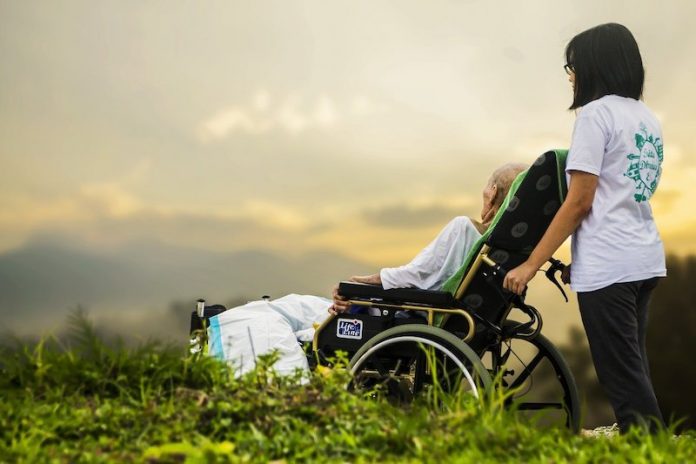
Severely ill COVID-19 patients on ventilators are placed in a prone (face down) position because it’s easier for them to breathe and reduces mortality.
But in a new study, researchers found that life-saving position can also cause permanent nerve damage in these vulnerable patients.
They believe the nerve damage is the result of reduced blood flow (due to coagulated blood) and inflammation.
Other non-COVID-19 patients on ventilators in this position rarely experience any nerve damage.
The research was conducted by a team at Northwestern University and elsewhere.
Based on this study and another, 12% to 15% of the most severely ill COVID-19 patients have permanent nerve damage.
Based on the number of COVID patients worldwide, the team estimated thousands of patients have been impacted.
The injury has been missed because people who have been critically ill are expected to wake up with some generalized, symmetric weakness because they have been bedridden.
But the pattern of weakness in the COVID-19 patients caught the researchers’ attention during rehabilitation since quite often an important joint such as the wrist, ankle, or shoulder would be completely paralyzed on one side of the body.
As a result of the findings, physicians are modifying the prone position protocol for COVID-19 patients at Northwestern Memorial Hospital in order to prevent nerve damage.
They noticed patients are getting a lot of pressure at the elbow or at the neck, and they made some adjustments to the way we position the joints as well as putting extra padding under the elbow and the knee where there is the most pressure.
The most common injuries are wrist drops, foot drops, loss of hand function, and frozen shoulder. Some patients had as many as four distinct nerve injury sites.
Some people who are dragging a foot need assistance with walking such as a wheelchair, brace, or cane.
The researchers have been doing some therapeutic nerve stimulation, which has shown in other work to help regrow nerves.
But many patients have pre-existing conditions that interfere with nerve regeneration, such as diabetes mellitus, so they are less likely to recover full function.
This could mean permanent difficulties with walking or critical hand functions like writing or operating a computer or cell phone.
One author of the study is Dr. Colin Franz, a physician-scientist.
The study is published in the British Journal of Anesthesia.
Copyright © 2020 Knowridge Science Report. All rights reserved.



